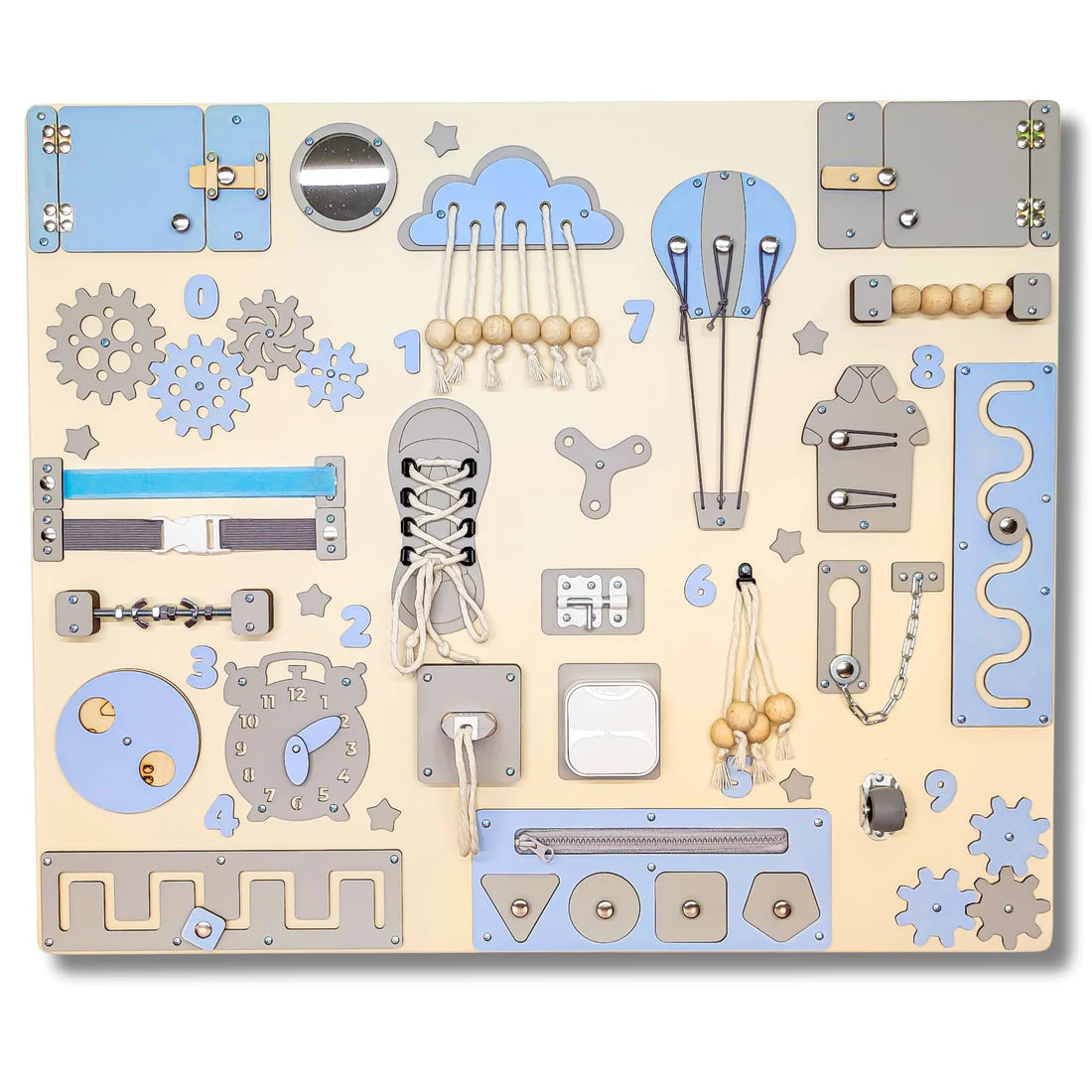Introduction: Role of Sensory Play in Early Childhood Education
The role of sensory in play can't be overevaluated because activities of this type help to significantly improve focus, develop memory and motor skills. Children learn to process information using all their senses through their own experiences in order to build a strong basis for cognitive growth.
Such learning is both enjoyable and effective, encouraging curiosity and self-expression in a child. The educators who are in search of a high quality instrument, should definitely pay attention to busy boards as they were created with kids in mind.
Cognitive Development through Sensory in Play
Among the key benefits of sensory play should be mentioned its impact on cognitive growth. The brain of a child builds new neural pathways, needed for the development of memory and support of problem-solving skills, when a child touches, smells, or manipulates objects.
In order to organize high-quality space for learning and not to miss a single detail, teachers and parents would need numerous items. The task may be rather time-consuming, but nowadays there is a much easier and effective solution. A busy board can be used instead of dozens of other toys. It takes the minimum place but at the same time provides great functionality.
As a result, early math and science skills naturally develop. Kids, in their turn, feel more courage to compare textures and recognize patterns.
For instance, Montessori-inspired sensory play busy boards, like the Blue Busy Board for Toddlers, are perfect choices for tactile learning for a child. Variable switches, zippers, and LED lights enhance sensory integration and coordination.
Physical Benefits
Sensory play in early years is needed not only for mental growth, but also for physical development. For example, fine motor skills are developed by activities like threading beads, pouring water, or squeezing clay. Additionally, for gross motor skills, there are larger sensory setups like sand pits or water tables. The list of key physical benefits includes:
- The development of hand-eye coordination through sensory in play activities.
- Enhancing balance due to movement-based sensory tasks.
- The development of bilateral coordination occurs because both hands are efficiently used together.
- Muscle control, needed for further tasks, such as writing and everyday self-care.
For more engagement, there are such tools as the Pink Busy Board for Toddlers where kids can practice these skills and have fun at the same time.
Emotional and Social Development

One more importance of sensory play is regulation and social bonding. Sensory activities are important for the personality growth of every child because they help to manage anxiety or frustration. In case if kids play together side by side in a group, they can learn patience and cooperation with each other.
Baby bonding strengthens attachment and communication. In most cases, it's carried out through shared sensory moments, which may include finger painting or playing with textures. Thanks to the tactile engagement, children feel secure. This factor is essential for the healthy development of the emotional sphere.
Creative and Imaginative Play
What is sensory play in the sense of imagination? In the period of early childhood education is an important aspect. The use of imagination while playing with different materials helps kids to turn simple elements into fantastic worlds. Sensory exploration is a key to lifelong creativity, which would in the future encourage storytelling and an open-minded way of thinking.
Montessori board tools from the all collections section can be integrated by both teachers and parents to inspire free play. These boards were created for transforming the daily routine into a real adventure. Kids are encouraged to be creative and not afraid of discoveries.
Conclusion: Emphasizing the Importance of Sensory Play
To sum up, the answer to the question why is sensory play important, is rather simple. It causes the development of mind, body, and emotions, creating the foundation for confident learners. What are the benefits of sensory play? Basically, they are boundless, including numerous aspects from boosting cognitive development to creativity and strengthening emotional intelligence.
The tools at https://www.montessoriboard.com/ ensure that everybody would find an opportunity for growth among available options. The educators can use all the available opportunities to create engaging learning environments to turn the child’s natural curiosity into something more.
For more tips and quality Montessori-inspired resources, visit www.montessoriboard.com.

